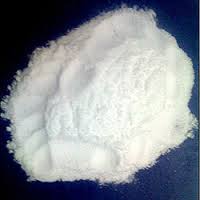Iodine is found on Earth mainly as the highly water-soluble iodide ion, which concentrates it in oceans and brine pool. It is the heaviest essential element utilized widely by life in biological functions. Iodine is a micro-nutrient of crucial importance for health and well-being. It is a trace element and is mostly concentrated in thyroid gland[1].
Function of Iodine in the Human Body
Iodine is required by the body for the synthesis of the thyroid hormones thyroxine (T4) and triiodothyronine (T3).
Thyroid hormones affect the dilation of blood vessels, which in turn affect the rate at which heat can escape the body. The more dilated blood vessels are, the faster heat can escape. One suffering from hyperthyroidism (an overactive thyroid) will experience a fever; on the other hand, one suffering from hypothyroidism (a less active thyroid) will suffer from a decrease in body temperature.[2]
Iodine deficiency
The lack of iodine play a significant role in fatal deployment. In extreme cases mental retardation in particular in children of mothers who have had an iodine deficiency. Fetal hypothyroidism leads to brain damage in unborn children.
| Signs | Symptoms |
|---|---|
| Thyroid enlargement (goiter) | Depression and anxiety |
| Weight gain | Reduce metabolic rate |
| Cold hands and feet | |
| Constipation | Brain fog |
| Dry skin | |
| Thinning hair | Increase need for sleep |
References
- Detels R, Holland WW, Mc Ewen HJ, Omenn GS. Oxford Textbook of Public Health. 3. Oxford University Press 1977. Endocrine and metabolic disorders; pp. 1114–1115.
- Effect Of Thyroid Hormone On Circulation Henry M. Thomas Jr M.D. 1957 The Journal of the American Medical Association JAMA.

